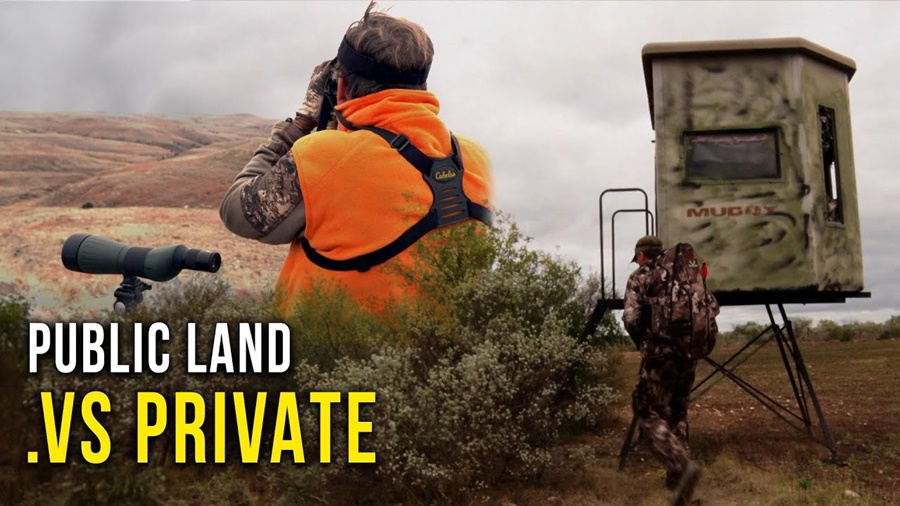Hunting regulations can be complex, especially when it comes to understanding the differences between public land and private land hunting. Each type of land has its own set of rules, responsibilities, and opportunities. Knowing these differences not only helps hunters stay within the law but also promotes ethical and sustainable hunting practices.
1. Understanding the Difference
Public Land
Public lands are owned and managed by government agencies such as the U.S. Forest Service, Bureau of Land Management (BLM), or state wildlife departments. These lands are open to everyone, and hunting is often permitted under specific regulations.
Private Land
Private lands are owned by individuals, families, or corporations. Access to these lands for hunting is a privilege, not a right, and typically requires explicit permission from the landowner.
2. Hunting on Public Land
Hunting on public land offers accessibility and freedom but also comes with rules that ensure fairness and conservation.
a. Licensing and Permits
Hunters must have:
A valid state hunting license
Species-specific tags or permits
Area-specific permits (in some cases)
Different areas may have limited-entry hunts, meaning hunters must draw a permit through a lottery system.
b. Season and Weapon Regulations
Seasons, bag limits, and allowable weapons are strictly enforced. Regulations can differ by state, species, and even by region within a state.
c. Public Land Boundaries
Knowing boundaries is critical. Crossing onto private land without permission even unintentionally can result in fines or criminal charges. Tools like GPS apps and government maps help hunters stay within legal boundaries.
d. Sharing the Land
Because public lands are open to everyone, hunters often share space with hikers, campers, and other outdoor enthusiasts. Practicing safety and courtesy is essential.
3. Hunting on Private Land
Private land hunting can offer more control and less pressure from other hunters, but it comes with its own responsibilities.
a. Permission Is Mandatory
You must have written or verbal permission from the landowner before hunting. Many states require written consent to be carried while hunting.
b. Landowner Rules
Even if hunting is allowed, landowners can set their own rules such as where you can hunt, what game you can pursue, and whether vehicles or ATVs are permitted.
c. Leases and Fees
Some private lands operate under hunting leases, where hunters pay for exclusive access. Others may charge day-use fees or allow free access in exchange for help with property management.
d. Respecting Property
Hunters must close gates, avoid damaging crops or fences, and leave the land as they found it. Ethical behavior ensures continued access for future seasons.
4. Legal Consequences of Violating Land Rules
Failing to follow public or private land regulations can result in:
Fines or license suspension
Confiscation of firearms or harvested game
Trespassing charges (civil or criminal)
Loss of hunting privileges across multiple states (through interstate agreements)
Responsible hunters must understand both state and federal laws before heading out.
5. Ethical Considerations
Beyond legality, ethical hunting is about respect for wildlife, landowners, and fellow hunters.
Follow fair chase principles.
Avoid overhunting pressured areas.
Report illegal activity such as poaching or trespassing.
Ethical hunters build positive relationships with landowners and help conserve wildlife for future generations.
6. Tips for Staying Legal and Ethical
Always check state hunting regulations before each season.
Use mapping tools to identify public vs. private boundaries.
Carry proper identification, licenses, and permits.
Communicate openly with landowners.
Practice firearm and archery safety at all times.
Conclusion
Whether you hunt on public or private land, understanding the rules is essential to a safe, lawful, and enjoyable experience. Public lands offer accessibility and adventure, while private lands can provide exclusivity and a more controlled environment. In both cases, respect, responsibility, and knowledge are the keys to being a successful and ethical hunter.


